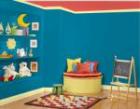1.Sink to their
level. Get on your knees in their room to view
things from a kid's level. Convenience is an important
factor in getting anyone to organize or put things away.
Lower clothing racks in the closet. Put most frequently
used items on the lowest shelves and in the lowest
drawers. Set up decorative, short open bins, crates,
baskets and boxes in corners, on closet floors and at
the foot of the bed.
2. Hide stuff under the
bed. Use flat, rectangular storage bins on wheels
that are made for under-the-bed storage. Designate one
of these for Barbie dolls and another for mini toy cars.
Store your children's artwork including construction
paper and crayons in one of the bins. Older children can
store schoolwork and notebooks here. Got music lovers?
They can keep a pile of CDs handy here.

3.
Make organizing fun. Organizing can be a drag
even for "big people." Imagine how your child feels at
the thought of clearing away his toys, clothes and
school work. Get your children involved by letting them
creatively label their own drawers and bins. They can
make personalized drawings as labels. Or you can take
photos of your child with an object that goes in the
drawer and tape it to the front of the bin or drawer. Is
the drawer supposed to hold small toy soldiers? Tape a
small clear plastic pocket to the outside of the drawer
that's stuffed with an example of the contents such as
one toy soldier. You can buy notebook plastic sleeves
(also called sheet protectors) from any office supply
store. Then just cut them to the size needed. Use clear
shipping tape to attach labels to bins. Put a laundry
hamper under a kid size basketball hoop.

4.
Keep drawers shallow. The deeper the drawer, the
more kids will fill it. With a few exceptions for big
bulky items, use shallow drawers. Some narrow storage
carts on wheels come with five or six shallow drawers.
You can roll the cart into the closet if needed or line
several in a row against a wall. Fill deeper drawers
with mini-organizers such as small trays, tins, recycled
cardboard boxes and more. Don't use lids on the
mini-organizers; that's just a hassle for kids to find
their items and remember to put the lids back on each
item. Use makeshift cardboard dividers to separate
things in drawers--like socks.
5. Color code
it. Buy blue bins for Barbie dolls and red bins for
fire trucks. Put summer clothing on green hangers and
Sunday dress outfits on blue hangers. Or use different
colors for different children. Suzy gets blue bins and
hangers and Sandy gets red bins and hangers.
6.
Hang it. Your children might view their
collection of self-created artwork in much the same way
as you view your collection of store-bought artwork. Buy
inexpensive frames and hang drawings in a clustered
artistic layout on one wall in your child's room. It
adds a decorative and personalized element. Put up a
cork/bulletin board for the kids to hang ribbons and
medals from field days, school spirit events and
competitions. Another cork board can be for photos. Or
hang a rectangular vertical homemade fabric organizer
with pockets beside the door to hold photos, souvenir
card collections and birthday cards through the
years.

7. Set ground rules. For example,
before you play another board game, you must first put
this board game away. Before each gift-giving season,
you must pick one item to donate to a nonprofit
organization; it brings a smile to the face of a child
with less than you. You can only keep things in your
room that have a place. So if a drawer is full and you
want to keep something new, you must discard something
from the drawer (for example, an old piece of artwork
for a new piece of artwork or an old broken toy for a
new one).
Nationally published freelance
writer Karen Fritscher-Porter writes about home
organizing solutions at http://www.easyhomeorganizing.com/
Article Source:www.articleavenue.com